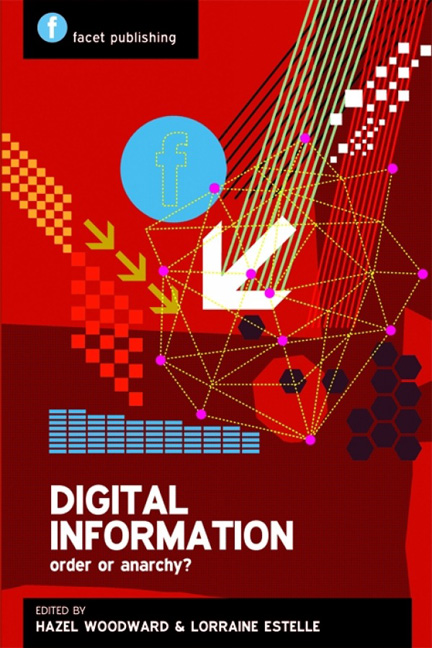Book contents
- Frontmatter
- Contents
- Acknowledgements
- Contributors
- Preface
- 1 Introduction: digital information, an overview of the landscape
- 2 Scholarly communications: the view from the library
- 3 Scholarly communications: the publisher's view
- 4 E-books and scholarly communication futures
- 5 Digitizing the past: next steps for public sector digitization
- 6 Resource discovery
- 7 Who owns the content in the digital environment?
- Index
5 - Digitizing the past: next steps for public sector digitization
Published online by Cambridge University Press: 08 June 2018
- Frontmatter
- Contents
- Acknowledgements
- Contributors
- Preface
- 1 Introduction: digital information, an overview of the landscape
- 2 Scholarly communications: the view from the library
- 3 Scholarly communications: the publisher's view
- 4 E-books and scholarly communication futures
- 5 Digitizing the past: next steps for public sector digitization
- 6 Resource discovery
- 7 Who owns the content in the digital environment?
- Index
Summary
Where we are now
Barely a week goes by without news of the digital publication of some sparkling cultural resource being splashed across the media – 2009 has been a particularly rich year. ‘World's oldest Bible published in full online’, reported the Daily Telegraph in July 2009, as the website with the Codex Sinaiticus was introduced to the general public (Daily Telegraph, 2009). ‘Frozen in time: historic images of polar exploration made public’, proclaimed the Daily Mirror, as the University of Cambridge published its stunning collection of images of early voyages to the Arctic and Antarctic (Daily Mirror, 2009). And the Independent newspaper marked the launch of the University of Kent's online archive of 20th-century political cartoons by reporting on ‘a century of satire, wit and irreverence’ (Independent, 2008).
Beyond the early blaze of publicity, some digitization projects have proved wildly spectacular, maintaining a considerable audience over time. The Complete Work of Charles Darwin Online, which provides access to numerous digitized documents relating to the naturalist (including several editions of The Origin of the Species), claimed 90 million hits between October 2006 and July 2009. The Old Bailey Online, giving extensive details of criminal trials in London's Central Criminal Court from 1674 to 1913, averages 6000 unique visitors a day, which means yearly visitors of just under 2.2 million.
More notoriously, the success of some sites in capturing widespread interest has caused some teething problems. The Vision of Britain site, which provides historic and social information on many places, large and small, in Britain, temporarily crashed after its creator appeared on breakfast TV to promote the site. And the same fate befell The National Archives’ 1901 Census site, a fact that really awoke the organization to the huge international interest in the rich seams of genealogical information it holds and proved a springboard for some spectacular digital successes. The blip was only a temporary one for the Vision of Britain site too – it now regularly achieves 80,000 unique users a month.
Information
- Type
- Chapter
- Information
- Digital InformationOrder or anarchy?, pp. 117 - 132Publisher: FacetPrint publication year: 2009
